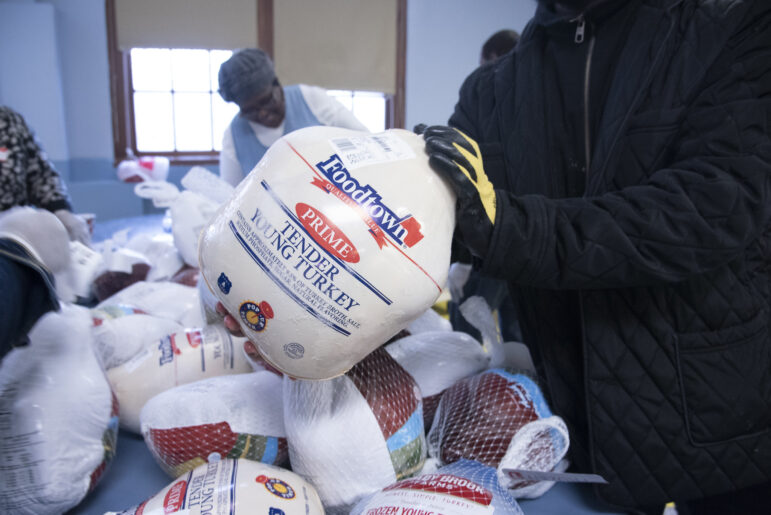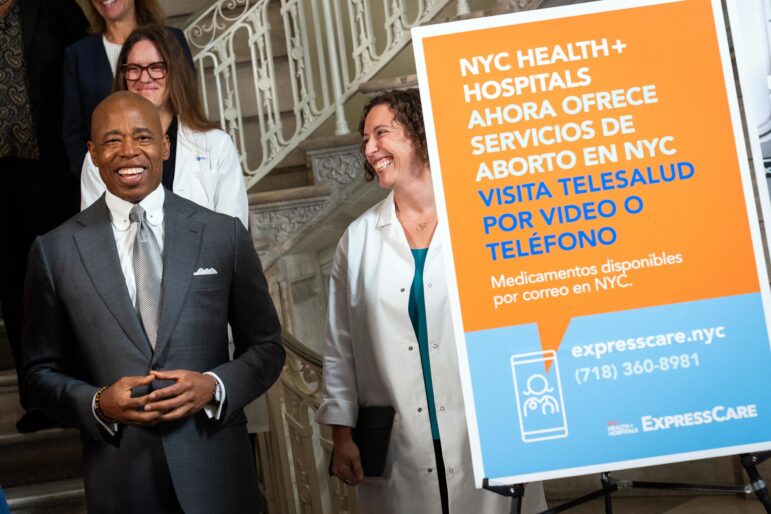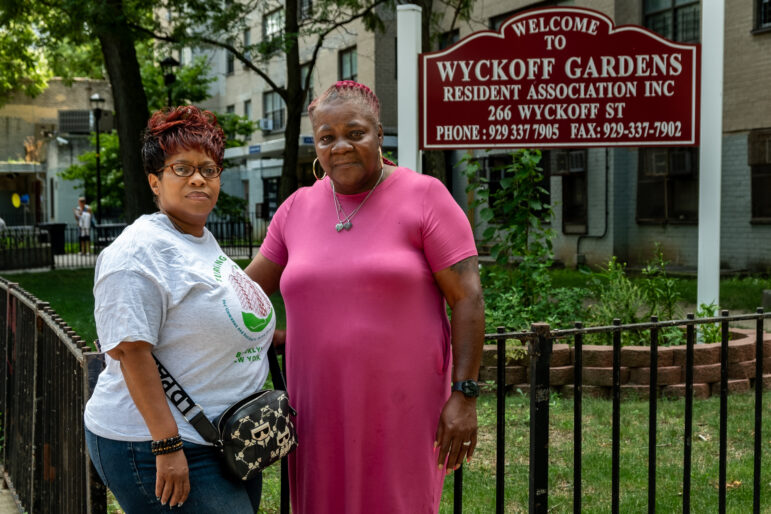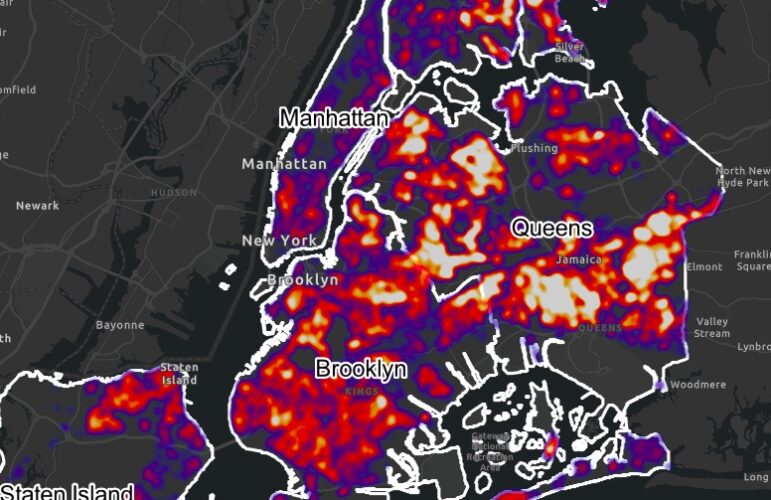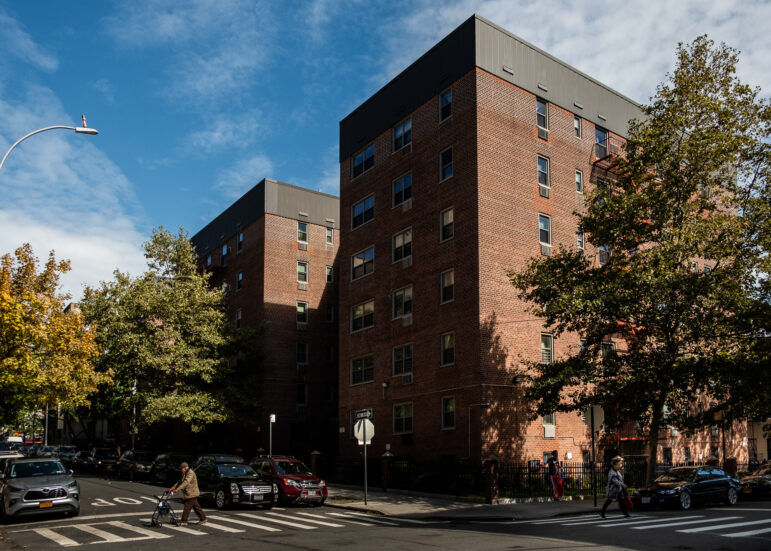Ten months after the beloved Empire Roller Skating Center closed its doors in Crown Heights, Brooklyn – shutting down the last place for indoor roller skating in all of New York City – new rink possibilities are rolling onto the horizon.
A passionate, activist skating community that made itself known to New York early last year as it struggled to save Empire – the hallowed arena on Empire Boulevard where roller disco once reached its zenith – had no choice in recent months but to take their skates to alternative venues in New Jersey. (See City Limits Weekly #577, The Empire Skates Back: Fans Rally To Save Rink.) State Key in the Bronx had closed a year before, in March 2006, and the legendary Roxy in Manhattan’s Chelsea was shuttered shortly after.
Now two proposals are giving skaters hope that the diversion of Kings (County, that is) will be reborn in Brooklyn. One would add roller skating to the roster of entertainment at a remade Coney Island. That’s the brainchild of Dianna Carlin, a skater who owns the Lola Staar Souvenir Boutique on the Coney Island boardwalk.
“It’s a shame that there really isn’t anything in Brooklyn anymore,” says Carlin. “People are really passionate about it here.” Well before opening her store eight years ago, Carlin harbored dreams of launching her own roller skating arena in the borough. Losing the Empire has now accelerated those plans.
Still in the negotiating phase, Carlin envisions building an eccentric venue that offers wholesome family entertainment in the daytime and burlesque-meets-disco themed parties for adults. “DJs on their turntables, disco balls, performance art and a big circuit tent over it,” gushes Carlin. “It’s going to be tons of fun.”
And it’s an idea that has already received enthusiastic support from Dick Zigun, a Coney Island Development Corporation board member and founder of Coney Island USA, which produces a number of events including the Coney Island Circus Sideshow. “It’s a terrific thing. I hope she gets through with it,” Zigun says.
Carlin’s plan for an arena is subject to whatever future agreement is reached between the city and developer Thor Equities, which has reportedly spent more than $100 million in the past several years to acquire Coney Island property. In Nov. 2006, Thor unveiled a glitzy year-round Disneyland-style $1.5 billion redevelopment plan that included the controversial placement of four residential towers in Coney Island’s amusement zone. In lieu of granting a change in the zoning for Thor to begin construction, Mayor Bloomberg revealed an $83.2 million proposal of his own this fall, which aims to integrate existing amusement rides like the Wonder Wheel with newer attractions and other venues, including a multicultural community center.
“I’m for a 21st-century Coney Island, but it has to be a venue that preserves as much entertainment as possible,” says Zigun. “That’s what Coney Island has always been about.”
While redevelopment plans remain up in the air, Carlin already knows firsthand how topsy-turvy operating a small business in the midst of a billion-dollar mega development project can be. Nearly a year ago, Carlin was evicted by Thor, she says, after apparently violating a confidentiality clause in her lease not to publicly discuss Coney Island development. (Thor did not respond to several calls from City Limits for comment.) But after mounting a series of rallies that culminated in a protest on the steps of City Hall last March, Carlin received a new lease from Thor owner Joseph Sitt.
“It’s a very precarious time for Coney Island,” says Carlin, who is looking at using an empty lot in the area to open a temporary outdoor rink this summer. “With all the construction that will be happening, I think that a roller rink would be a great contribution to give people more of a reason to come here.”
Elsewhere in Brooklyn, skating advocates await word of new developments after meeting with Prospect Park Alliance President Tupper Thomas and elected officials last summer. With plans underway to construct two ice skating rinks adjacent to the Wollman Ice Skating Rink in Prospect Park in a $60 million project slated for completion in 2011, the activists sought to convince park officials to preserve one of the rinks for roller skating.
“The kids could really use the space to practice and enhance their skills,” says Tanya Odums, founder and executive director of a competitive teen skating team run by the nonprofit youth advocacy group HYPE (Helping Young People Excel). “We’re using a middle school in Bed-Stuy to practice, but it doesn’t really meet our needs because the gym is very small.”
And while Eugene Patron, a spokesman for Prospect Park Alliance, agrees that the meeting reinforced the need for a new public roller skating hub in the borough, the decision to include one will be based on the project’s design and community interest. City Councilwoman Letitia James, for one, says a new rink in her district could not arrive soon enough.
“This is one of my top priorities for 2008,” James says. “We have enough luxury housing in Brooklyn. What we really need are more community centers that provide constructive activities for our young people.”
Former Empire Roller Skating Center regular Bill Butler, dubbed the “Godfather of Roller Disco,” says he’s excited about the possibility for roller rebirth in Brooklyn. Butler, 74, invented the “Brooklyn Bounce” routine that created a sensation in the 1970s, attracted hundreds to his Thursday night jam sessions, and brought international acclaim to the Empire.
Speaking from his new home in Georgia, where he runs the Creative Skate Dance Company, Butler said a new skating rink in Brooklyn should be coupled with the intent to capture and preserve the roller skating world’s vibrant history and culture.
“Skating is a science, so it’s not about rolling around a floor,” he says. “It’s magical and brings people together like no other sport can. There’s nowhere else in the world where all of this energy can be brought together so beautifully than in the great metropolis of New York.”


